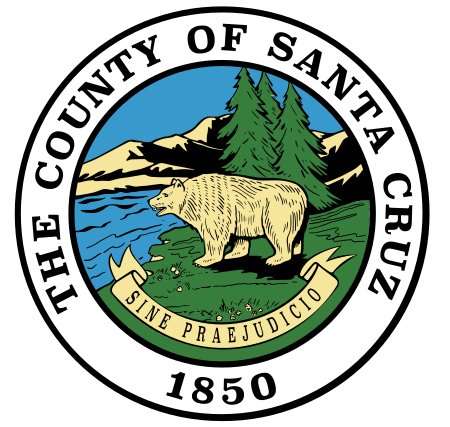SHERIFF'S COMMUNITY SERVICE OFFICER (#BN7 ) $33.47-$42.27 hourly / $5,801.00-$7,327.00 monthly / $69,617.60-$87,921.60 yearly
Definition
Under
general supervision, assist the public, sworn, non-sworn and other staff by performing
a variety of public relations, technical, clerical, and law enforcement
functions including, receipt and processing of non-emergency calls, report
services not requiring a sworn officer and perform other duties as required.
Distinguishing Characteristics
Positions
in this class are non-sworn civilian positions in the Sheriff's Office. These
positions are distinguished from the Deputy Sheriff class in that it does not
require peace officer status, training or responsibility, and officers in this
class do not carry firearms. This class is distinguished from the Sheriff's
Security Officer class by the responsibility for handling law enforcement
non-emergency requests for service, providing complex information on a wide
variety of law enforcement-related topics, conducting investigations, and
report writing.
Typical Tasks
·
Assist the public by telephone in providing comprehensive
information in response to non-emergency requests for service;
·
Advise public of regulations, procedures and issues relating to
civil, criminal, municipal and state codes;
·
Make referral to appropriate divisions within the Sheriff's
Office, other government entities, community, and private services as
appropriate;
·
Obtain and provide information related to the completion and
processing of complaints or law enforcement reports;
·
Process citizen reports, inquiries and calls for service in
accordance with procedural requirements;
·
Conduct interviews with victims and witnesses; may appear in court
to provide testimony regarding case evidence and statements obtained;
·
Ensure forms, documents and reports are complete and conform to
regulations;
·
Compile data from multiple sources to complete and process forms, documents,
and reports in accordance with procedures;
·
Research problems and devise appropriate solutions based on
Community Policing models;
·
Conduct criminal investigations in cases that do not require the
intervention of a sworn peace officer and do not involve suspect contact;
·
Receive, transport, and process property and evidence; may testify
in court on the chain of custody records on property held as evidence;
·
May deliver non-hazardous subpoenas;
·
Perform clerical and maintenance support as needed;
·
May enter or retrieve information and prepare periodic or special
reports using a personal or on-line computer system;
·
May conduct meetings and make presentations to community and
school groups, write articles and press releases, prepare pamphlets and
brochures related to law enforcement and crime prevention activities.
Employment Standards
Knowledge of:
Some
knowledge of:
- Functions,
organization, purpose, operation, and procedures of law enforcement and
related government agencies.
- Techniques
for dealing with people of diverse socioeconomic levels and cultural
groups in tense and verbally abusive situations.
- Report
writing in a law enforcement agency.
- Interview
and interrogation procedures.
- Basic
factors that influence human behavior.
- Operation of
communication equipment used in the course of work, such as radios,
telephones, pagers, and associated systems.
- Basic
techniques for eliciting and providing information telephonically.
Ability to:
- Learn and
apply applicable laws, rules, and regulations, and to inform members of
the public of processes and procedures.
- Successfully
complete a Community Service Officer Academy with a minimum of 120 hours
of training within six months of appointment.
- Communicate
effectively with members of the public in stressful situations.
- Follow
written and oral instructions and make decisions in routine procedural
matters without immediate supervision.
- Exercise
good judgment, reason, and discretion in analyzing and resolving problems.
- Prioritize
matters appropriately.
- Prepare
clear and concise reports and documents.
- Read,
understand, and interpret standard official legal documents.
- Operate
standard office equipment including personal and on-line computers.
- Locate
streets and other geographical points using a map.
- Maintain
accurate records and files.
- Establish
and maintain cooperative working relationships with sworn personnel.
- Deal
tactfully and effectively with a variety of individuals who may be
emotional, hostile, or irate and from varying cultural and socioeconomic
backgrounds.
- Adopt quick,
effective, and reasonable course of action under adverse and/or emergency
conditions.
- Obtain
information through interview, interrogation, and observation.
- Stand and
walk for extended periods of time up to 8 hours.
Education and Experience: Any combination of education and
experience that would provide the required knowledge and abilities is
qualifying, unless otherwise specified. A typical way to obtain the knowledge
and abilities would be:
Graduation
from high school or attainment of a satisfactory score on a G.E.D test.
Miscellaneous
SPECIAL REQUIREMENTS/CONDITIONS:
·
License: Possession of a valid California Class C Driver License.
·
Training: Incumbent must attend a Community
Service Officer Academy with a minimum of 120 hours of training within six
months of appointment. Incumbent must also successfully complete computer
dispatch training.
·
Background Investigation: Ability to pass a full background
investigation.
·
Special Working Conditions: Exposure to individuals
who may be hostile and abusive.
·
Other Special Requirements: Must be at least 18 years
of age at time of appointment; must be available to work nights, weekends,
and/or holidays.
PREVIOUS CLASS TITLES: None
Bargaining Unit: 41
EEOC Job Category: 02
Occupational Grouping: 01
Workers' Comp Code: 0053
CLASS: BN7; EST: 1/1/1999;

